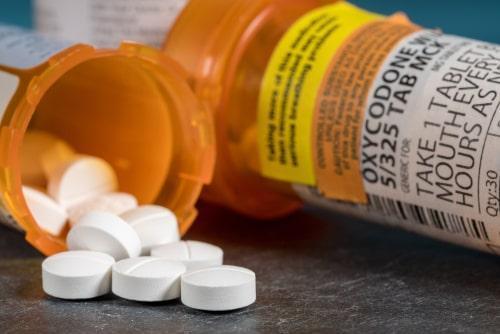Understanding Texas Drug Charges for Opioids and Fentanyl
 There are multiple types of controlled substances that are regulated at the state and federal levels, and people who use or sell these drugs without authorization may face criminal charges for drug possession or drug distribution. While most people may think of drug crimes as involving “hard drugs” like heroin, cocaine, or methamphetamines, more and more of these cases are related to prescription opioids. These drugs can be highly addictive and dangerous, and law enforcement officials may investigate and prosecute those who are suspected of issuing illegal prescriptions or engaging in other types of drug trafficking.
There are multiple types of controlled substances that are regulated at the state and federal levels, and people who use or sell these drugs without authorization may face criminal charges for drug possession or drug distribution. While most people may think of drug crimes as involving “hard drugs” like heroin, cocaine, or methamphetamines, more and more of these cases are related to prescription opioids. These drugs can be highly addictive and dangerous, and law enforcement officials may investigate and prosecute those who are suspected of issuing illegal prescriptions or engaging in other types of drug trafficking.
Opioid Possession and Distribution Charges
Prescription opioid painkillers have been used for multiple decades, but the use and abuse of these drugs has exploded in recent years. These drugs include:
-
Morphine
-
Codeine
-
Hydrocodone (also known under the brand name Vicodin)
-
Oxycodone (also known under the brand name OxyContin)
-
Fentanyl
Due to the risks of addiction and overdoses, the Texas Controlled Substances Act includes opioids in Penalty Group 1. This means that the harshest penalties will apply in cases where a person is charged with possession or distribution of these substances. Possession of more than one gram is charged as a third-degree felony at minimum, and manufacturing or delivering more than one gram is a second-degree felony. Charges increase significantly in cases involving larger amounts of these substances, and a person who is convicted may be sentenced to a lengthy prison sentence and be required to pay large fines.
Opioids are strictly regulated, and doctors and pharmacists must follow certain rules when prescribing or dispensing these drugs. When providing treatment for “acute” pain, which involves a temporary physiological reaction to an injury, illness, or surgical procedure, prescriptions cannot be issued in an amount that exceeds a 10-day supply, and these prescriptions cannot be refilled. However, these rules do not apply in cases where a person experiences chronic pain, when a patient is receiving treatment for cancer, or when palliative or end-of-life care is being provided.
In some cases, doctors or pharmacists may be accused of participating in drug trafficking rings in which fraudulent prescriptions for opioid painkillers are issued with the intent of distributing or selling these drugs to others. In situations involving large amounts of drugs, federal charges may apply. A recent case that took place in Houston offers an example of how these cases are prosecuted. The doctor who was charged in this case issued large numbers of illicit prescriptions for hydrocodone and oxycodone, sometimes providing as many as 90 prescriptions per day without examining or evaluating patients. The doctor was convicted of five counts of federal drug offenses, and each of these counts has a maximum sentence of 20 years in prison.
Contact Our Dallas Drug Crimes Defense Attorneys
If you have been accused of drug charges related to fentanyl or other opioids, The Crowder Law Firm, P.C. can help you determine your best options for defense. We will provide you with strong representation during your case, helping you achieve a positive outcome. Contact our Fort Worth drug charges lawyers today at 214-544-0061 for a free consultation.
Sources:
https://statutes.capitol.texas.gov/docs/hs/htm/hs.481.htm
https://www.justice.gov/opa/pr/texas-physician-found-guilty-unlawfully-prescribing-over-13-million-doses-opioids
https://www.texasattorneygeneral.gov/initiatives/opioid-crisis

















